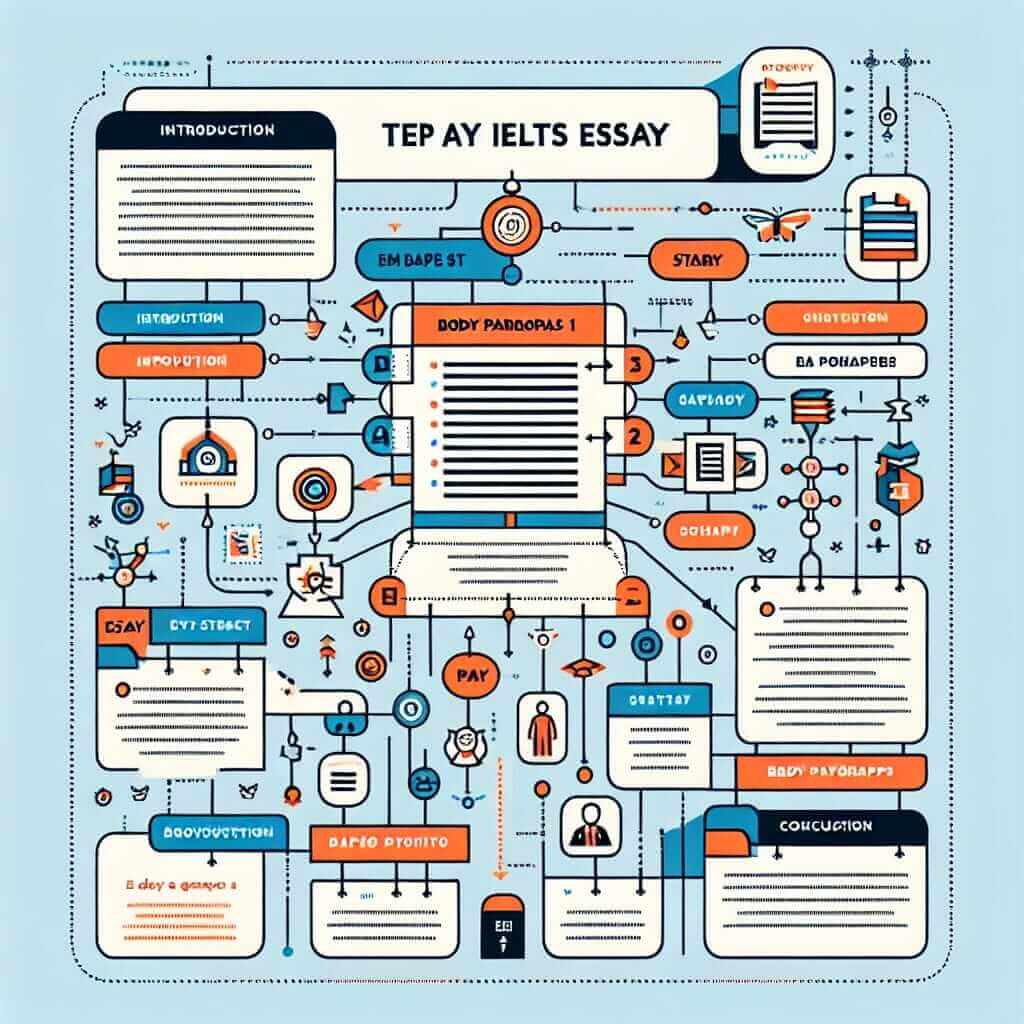The Importance of IELTS Writing Task 2
IELTS Writing Task 2, an essay writing component, holds significant weight in the IELTS exam, accounting for two-thirds of the writing score. It assesses a candidate’s ability to present a well-structured argument, supported by relevant examples, within a limited timeframe. Therefore, understanding how to effectively teach this section is crucial for IELTS instructors to equip their students with the necessary skills to excel.
Strategies for Teaching IELTS Writing Task 2
Teaching IELTS Writing Task 2 effectively involves a multi-faceted approach that encompasses understanding the task, planning the essay, mastering language and grammar, and refining writing techniques.
1. Understanding the Task
Begin by ensuring students clearly comprehend the task requirements. This includes:
- Identifying keywords: Train students to pinpoint the keywords in the question prompt to fully grasp the essay topic and scope.
- Analyzing question types: Familiarize students with different question types, such as opinion, discussion, problem-solution, and advantages-disadvantages essays. Each type demands a specific essay structure and approach.
- Brainstorming ideas: Encourage students to brainstorm ideas and arguments relevant to the question. Teach them mind-mapping or other brainstorming techniques to facilitate this process.
2. Planning the Essay
A well-structured essay is key to achieving a high band score. Guide your students to:
- Develop a clear thesis statement: This statement should explicitly state the essay’s main argument and provide a roadmap for the reader.
- Structure their essay logically: A typical essay structure includes an introduction, body paragraphs (2-3), and a conclusion. Each paragraph should focus on a single main idea with supporting evidence.
- Use cohesive devices: Teach students to link their ideas smoothly using transition words and phrases (e.g., furthermore, however, in conclusion). This enhances the essay’s flow and coherence.
 IELTS Essay Structure
IELTS Essay Structure
3. Mastering Language and Grammar
Language accuracy and range are crucial for a high score. Help your students improve their language proficiency by:
- Expanding vocabulary: Encourage the use of topic-related vocabulary and synonyms to avoid repetition.
- Using a variety of grammatical structures: Emphasize the use of complex sentences, different tenses, and a range of grammatical structures to showcase language proficiency.
- Focusing on accuracy: Remind students to pay close attention to grammar, spelling, and punctuation as errors in these areas can lower their score.
4. Refining Writing Techniques
Once students understand the basics, introduce them to advanced writing techniques to elevate their essays:
- Developing strong arguments: Encourage critical thinking and teach students to present well-reasoned arguments supported by relevant examples.
- Using evidence effectively: Emphasize the importance of backing up claims with data, statistics, or real-life examples to strengthen their arguments.
- Writing concisely: Train students to express their ideas clearly and concisely, avoiding unnecessary jargon or overly complex sentence structures.
Examples from IELTS Writing Task 2
Sample Question:
Some people believe that the best way to improve public health is by increasing the number of sports facilities. Others, however, believe that other measures are required. Discuss both views and give your own opinion.
Teaching points:
- Keyword identification: public health, sports facilities, other measures
- Question type: Discussion essay
- Possible arguments:
- For: Increased physical activity, reduced risk of chronic diseases
- Against: Accessibility, affordability, individual motivation, other factors like diet and education
Tips for Success
- Practice regularly: Encourage students to write essays on a variety of topics and time themselves to simulate exam conditions.
- Seek feedback: Provide constructive feedback on their writing, focusing on both strengths and areas for improvement.
- Read model essays: Analyze sample essays together to identify effective writing techniques, vocabulary, and argumentation strategies.
- Stay updated: Keep abreast of the latest IELTS trends and familiarize yourself with common essay topics.
Conclusion
Teaching IELTS Writing Task 2 effectively requires patience, expertise, and a student-centered approach. By equipping your students with the necessary skills and strategies outlined in this guide, you can empower them to approach the task with confidence and achieve their desired band scores. Remember, consistent practice, constructive feedback, and a deep understanding of the task requirements are essential ingredients for success in IELTS Writing Task 2.


